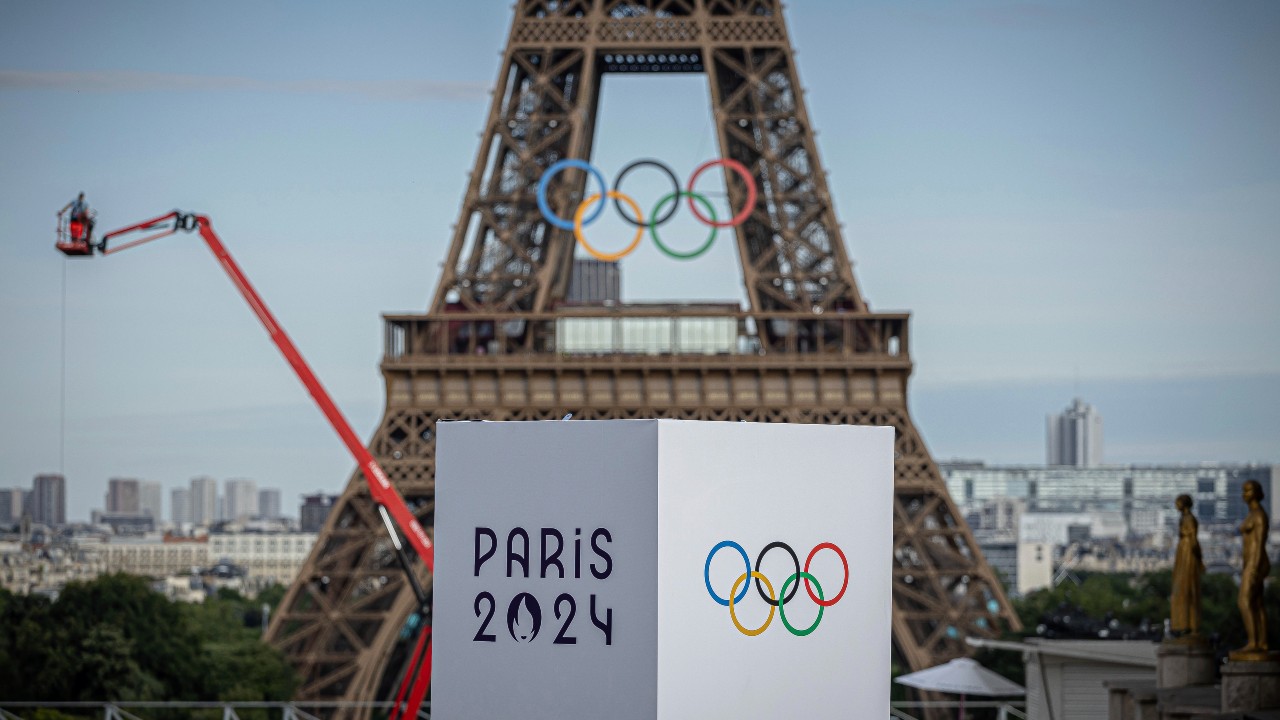
IOC president Thomas Bach faced questions on a variety of subjects in his final press conference at the Olympics in Paris on Friday.
Here’s a rundown of some key topics he covered.
COVID-19
American sprint star Noah Lyles made headlines on Thursday when he ran to bronze in the 200 metres mere days after testing positive for COVID-19. The diagnosis was not revealed until after the race when Lyles had to be helped off the track by medics. Rules for COVID-19 didn’t prohibit anyone from competing with the virus — which was a reversal from 2021 in Tokyo in the midst of the pandemic.
“COVID, not only here in France, is being treated like any other respiratory disease. It is being treated like the flu now. So there is no obligation for any special measures or notifications,” Bach said. “The (National Olympic Committees) and the athletes have already taken the measures they deemed appropriate. … We can only say that general policies have been followed.”
Boxing
Algerian boxer Imane Khelif and Lin Yu-ting of Taiwan have been the subject of hateful rhetoric during the Games over misconceptions about their gender.
Both have advanced to their respective Olympic finals.
The vitriol stems from claims by the Russian-led International Boxing Association, which has been permanently banned from the Olympics, that both Khelif and Lin failed unspecified eligibility tests for the women’s competition at last year’s world championships.
Bach has been adamant the two are eligible to compete.
“Women must be allowed to take part in women’s competitions,” he said. “The two (boxers) are women.
“… This is not a question of inclusion, that has never played a role. This is a question of justice. … Women have a right to participate in women’s (events).”
With the IBA banned, the IOC has only provisionally approved boxing as a sport for 2028 in Los Angeles. An approved proper governing body must be in place for the sport to return.
“I hope we’ll have an answer in the first half of next year,” Bach said.
Doping
China and the United States have been firing verbal shots at each other and the World Anti-Doping Agency (WADA) for months due to swimming and track and field controversies.
The questions continued at the press conference with journalists from both countries pressing Bach on concerns.
“We have confidence in the work of WADA,” Bach said.
He did not, however, give a personal vote of confidence to WADA president Witold Bańka when asked about him. Instead, he generalized his answer to speak about the organization as a whole.
Olympic dates
Bach was asked if he’d consider moving dates of the Summer Olympics, like FIFA did for the 2022 soccer World Cup in Qatar, if that country or Saudi Arabia wants to host.
He spun the question, saying dates could change regardless of which countries host.
“We will have to speak about the dates because of climate change,” he said. “If climate change is continuing in way that experts are forecasting, then it will be very difficult to organize Olympic Games in the summer in August.”